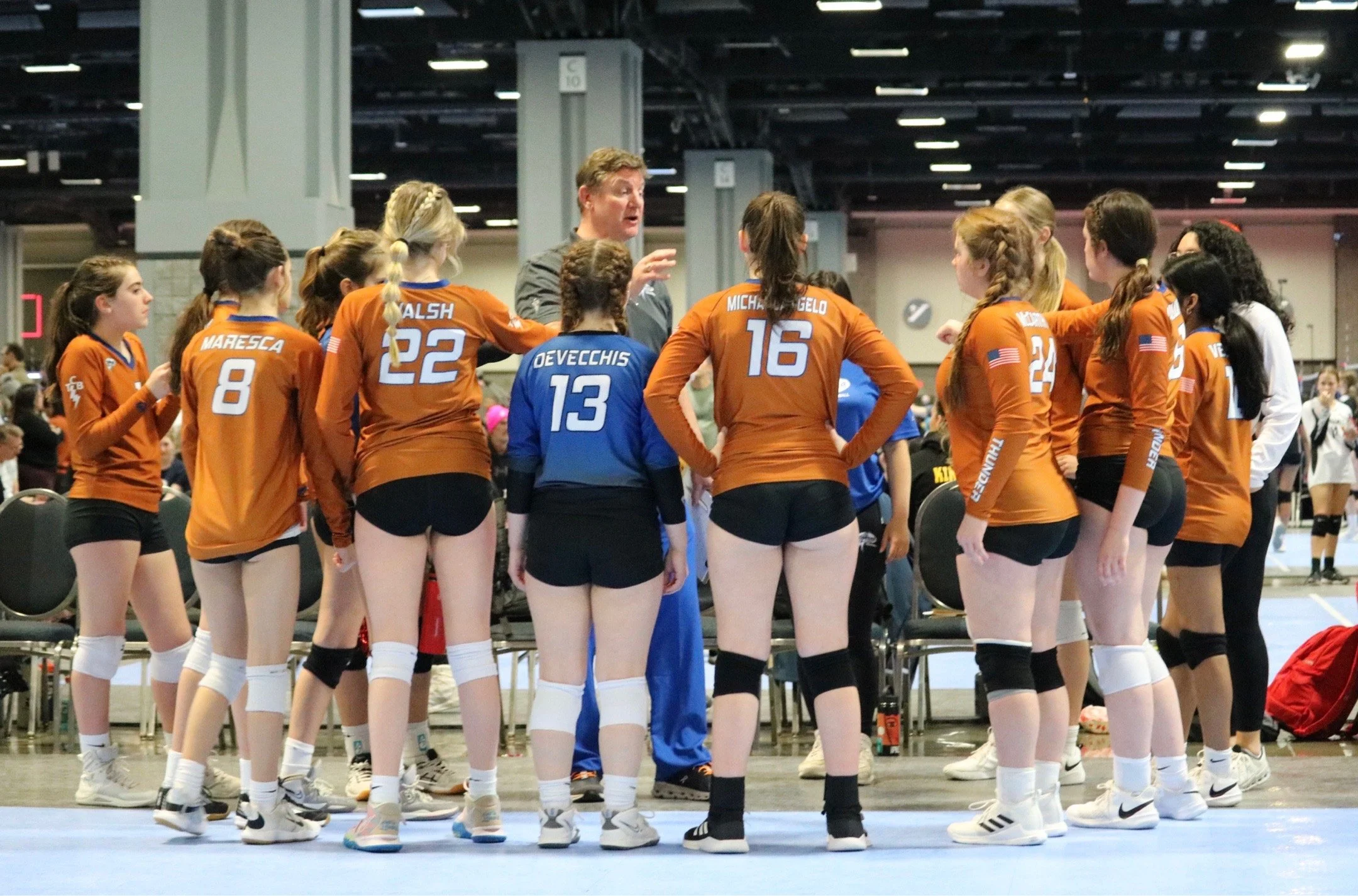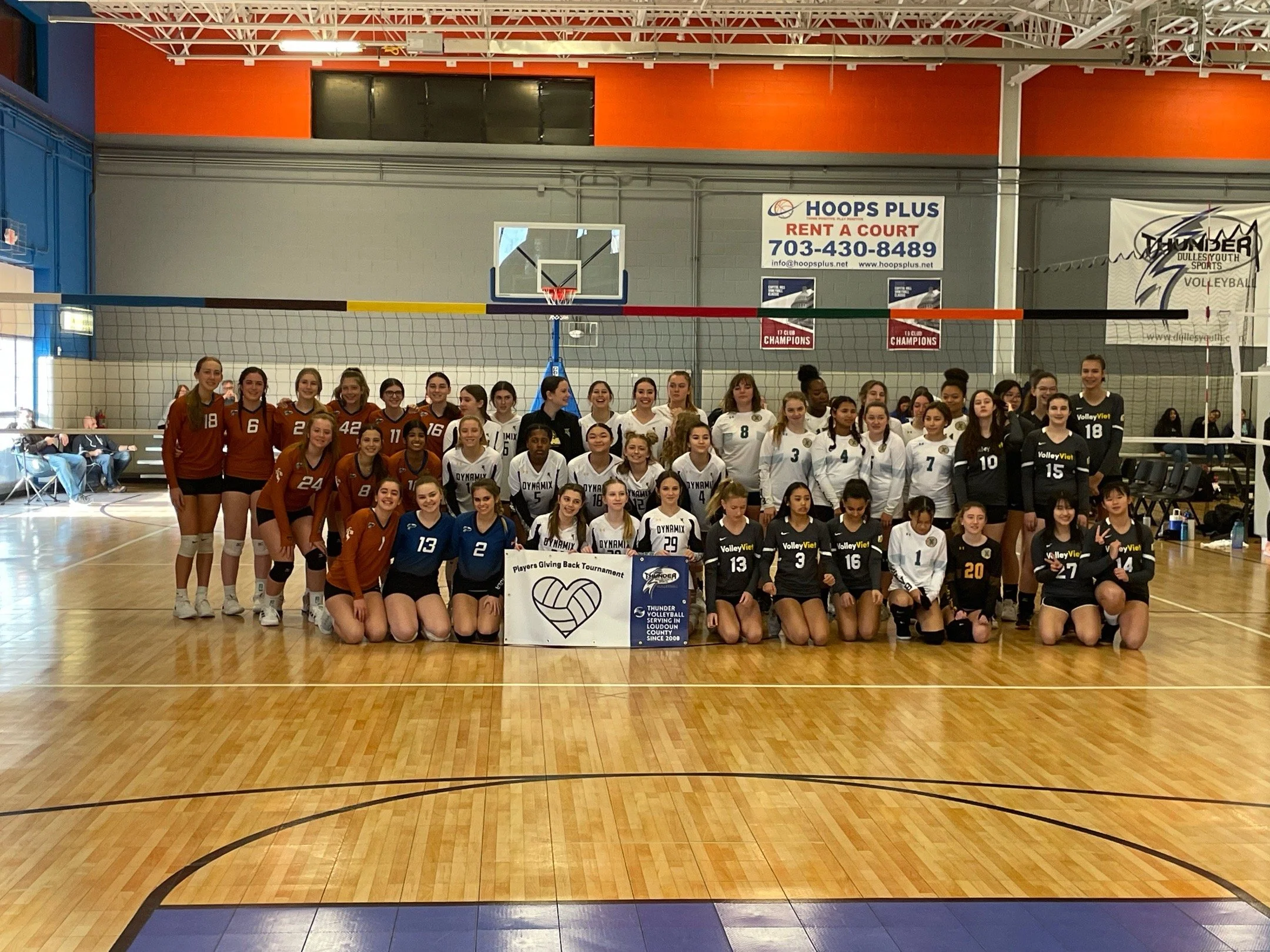By: Amanda Peña
I recently conducted a facilitation on the ideas of resilience, being a good teammate and friend, and finding validation within oneself with some of the adolescents that play at the volleyball club I coach for. I was given this avenue through the Shinnyo-en Fellowship I received a year ago. This fellowship is funded by the Shinnyo-en Foundation based in San Francisco, CA, and there are only six of us in the nation. I was awarded the fellowship through the Jimmy and Rosalynn Carter School for Peace and Conflict during my senior year of my undergraduate studies where I got to pick an organization to work at and while the Carter School gave a salary and a separate professional development stipend. During my time as a fellow, I also have to create an impact project that be related or unrelated to the work I do at the organization of my choosing. I had a couple ideas bouncing around for this project, and ultimately decided on facilitating a dialogue in the volleyball club I coach for.
Purpose:
The purpose of the impact project is to make a difference in a community we are involved in. One of the principles of the Shinnyo-en Foundation is to ‘be a ripple of change,’ and that is a concept I hold dearly. The idea of one action, big or small, having the potential to create positive change inspires me every day.
Dulles Youth Volleyball Club (DYS) has become a second home for me. I have been playing volleyball since I was ten years old and began to play competitively at 13 years old, and the court became my safe space. I thrive in that environment. During my senior year of high school, I was asked to coach at DYS and I have not left since. It has been five, almost six, years now, and I love what I do. As a club, we are incredibly conscious of the culture we create for the players, parents, and as coaches. We do what we can to create a safe space for athletes, families, and ourselves, and the environment we have created shows we have been successful in doing so. Within the last year, the other coaches and I have had many conversations about how we can help the athletes to become resilient and instill confidence in them because we have noticed some struggle with these concepts. For example, many of my athletes get in their head after making a mistake and cannot seem to get out of that headspace of disappointment or embarrassment, therefore, more errors are made. The most important point in this game is the next point, and I have seen many adolescents not give themselves the opportunity to better the game because they were too focused on a past mistake. It is also interesting to hear reflections from games or practice from the players because many of them focus on their mistakes and do not include what they did well.
So much of what is learned in sports can be applied to all other aspects of life. Much of how I operate today comes from what I learned through volleyball, and I would not be the same without it, and I hope that some of those girls are able to carry some of the lessons learned with them as they continue to grow as individuals and players. So, I decided to conduct my impact project on facilitating a dialogue with adolescents from the club program on their thoughts and ideas on resilience, what it means to be a good teammate and friend, and finding validation within oneself rather than others. The definition of resilience I used for this project is “the capacity of a dynamic system to adapt successfully.” My hope was for them to explore what their why may be, and how that may present itself differently as they continue to grow older but the reasoning may likely stay the same.
The Preparation:
To prepare for the facilitation, I first brainstormed with a Co-Commissioner of the club to discuss how this dialogue could look like based on the needs of the program. After this conversation, I created a working document where I stated the purpose, goal, and the ‘why’ behind the facilitation. The purpose was to grow as human beings and explore our why. The goal of the facilitation was to empower and validate adolescents at a crucial age. And the ‘why’ was to recognized the struggles of being a teenager, emphasizing the importance of community, and translating the life lessons learned from this sport to other aspects of life. I wanted to use my experience as a player to help them understand that they will never be alone, that the feelings they feel now are valid and not uncommon. DYS had teams ranging from U13 through U18s this past season, so I decided to break the age groups in half for each session that would last 90 minutes. The U13s, U14s, and U15s would be in one session, and the U16s, U17s, and U18s would be in the other. I, then, brought this idea to my fellowship mentor, and she gave me some ideas on how to narrow down which ideas to cover for the facilitation. I came up with a group questions and a group activity to have them explore these concepts.
The Facilitation:
On June 5th, I met the players at a local library to conduct the facilitation. I started with the group ranging from U13-U15s, and it went how I expected it to go. For the athletes in that session, it was their first time in that kind of setting, so they felt awkward by it. Prior to the facilitation, many of them shared with me that they don’t feel confident in their responses. They believed there would be a ‘right’ vs. ‘wrong’ answer, and I reminded them then and reminded them at the start of the facilitation that their answers will be valued. There is no ‘right’ or ‘wrong’ answer when it comes to one’s experiences and talking through ideas. There were definitely moments where there were silences the girls found awkward, and I reminded them to share whatever was on their mind. I asked them about their definitions of resilience, of what makes a good teammate and friend, and asked about ways they show themselves validation. It was super cool to start to see the wheels turning in their brains when we discussed these topics. After that session, the older players came in for their facilitation. I asked the same questions to see if there was a difference in their answers compared to the younger group, and I found that there wasn’t. The themes and patterns from both groups’ responses were the same, the older group just had more experience, and therefore, their answers were more in-depth. This group felt more comfortable answering the questions in this setting because it reminded them of being in Socratic Seminars in their English classes, which made me laugh thinking about my Socratic Seminar experiences at that age. I also reached out to two players I have coached and played with in the past to see their thoughts on these concepts and if they would differ from girls in the program now. Both of these young women are in university now, and one of them plays DI volleyball. The themes and the patterns stayed the same, but the answers were different based on their experiences. One of the questions I asked was “How do you show up for others? How do you show up for yourself?” and throughout the age groups, the majority said they were stumped because they realized they do not take care of themselves in the same way that they would take care of those they care for—and that was my goal. I wanted them to realize this lesson at a younger age because that is what I would have wanted (and probably needed.)
Recommendations:
For coaches, practitioners, and all those who work with adolescent girls, you know as well as I do the importance of the topics mentioned above. I believe part of our job as someone this group looks to is to help these girls believe in themselves.
· Create a safe place for the players by being intentional and genuine with your actions and words. For me, this looks like saying what I mean and talking to my players about other aspects of life outside of volleyball. I do not ever raise my voice to get a point across or demand something from the team, but instead I am mindful of my tone while delivering the message that needs to be said.
· Have open conversations. At the beginning of each season, the players and myself sit down to discuss what our expectations are for the season, what my expectations of them are, what their expectations of me look like, and what happens if expectations are not met. I have found this transparency to helpful, especially when conflicts may arise because all parties know what the deal is.
· Make players think. When it comes to coaching, there are the athletes who pick up the technique, corrections, and decision-making after telling them once and getting good repetitions in. There are others who can do the same thing, but want to understand the why behind it (I fall in this category.) Growing up, I appreciated the sport more when I was asked questions about my decision-making. The coach did not make me feel as if I was right or wrong, but rather created a space where I could think about the reasoning behind my actions and help guide me into becoming a smarter player. From that point on, my mental game grew and it was like I was playing chess. I saw aspects of the game my teammates were not seeing because of this.
· Constantly Learn. As coaches and mentors, we are expected to know everything, and we know we do not. So, be open to learn how to better yourself as a coach. Read different blogs and articles on how to be a better coach, learn a new method to teach a technique, and most importantly, talk to others who do similar work that you do.
Reflection:
Working with this age group has been a blessing. When I first started to play competitively, I had a traumatic experience and that has shaped my life from that point forward. I had lost my safe space and didn’t feel comfortable, and it took time to gain that strength and validity within myself back. My why as a coach is to make sure that any player that comes through me will not feel the same way I did at their age. I wanted to facilitate this dialogue to start planting seeds of these ideas now so as they get older, they feel empowered and trust themselves.
Players Giving Back Tournament 2023, Author’s Personal Collection

